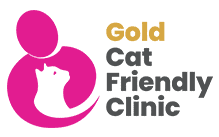Many dog owners enjoy spending time at the beach, allowing their furry friends to frolic in the waves and enjoy the sun. While the beach can be a fun and refreshing experience, it's important to be aware of the potential dangers, including saltwater poisoning. If your dog ingests saltwater, it can lead to significant health issues if not addressed promptly. At Pets'n'Vets, we explore the symptoms of saltwater poisoning in dogs to help you recognize the signs and take appropriate action to protect your canine companion's well-being.
What makes salt poisonous to dogs?
When your dog ingests salt, it causes the cells in their body to release water. If your dog only ingests a small amount of saltwater, is hydrated and has access to plenty of fresh water, it's unlikely to cause any problems.
However, if your dog ingests a large amount of saltwater, is already dehydrated, and doesn't have access to fresh water, this can cause their cells to release too much water. This can be fatal if not treated promptly.
If you have any immediate concerns, get in touch with Pets'n'Vets in Glasgow today.
Excessive thirst
A common symptom of saltwater poisoning in dogs is excessive thirst. After ingesting saltwater, dogs may feel dehydrated and attempt to quench their thirst by drinking more water than usual. Monitor your dog's water consumption, and if you notice a significant increase, it could be a warning sign of saltwater poisoning.
Vomiting and diarrhoea
Saltwater ingestion can irritate your dog’s tummy, leading to vomiting and diarrhoea. If you see your dog vomiting or experiencing loose stools after a beach outing, you should seek veterinary attention promptly. These symptoms can quickly lead to dehydration, electrolyte imbalances, and further complications if left untreated.
Lethargy and weakness
Dogs suffering from saltwater poisoning may appear tired, weak, lacking in energy, and be reluctant to engage in their usual activities. Keep an eye out for unusual fatigue in your dog, as it could be a sign of saltwater poisoning.
Excessive drooling
An excessive amount of drooling is another potential symptom of saltwater poisoning. If you notice your dog drooling more than usual, with saliva appearing thicker or frothy, it could indicate irritation of the mouth and throat caused by saltwater. Contact your local vets in Glasgow to discuss your observations and seek appropriate guidance.
Tremors and seizures
In severe cases, saltwater poisoning can lead to neurological symptoms, including tremors and seizures. These symptoms indicate a more advanced stage of poisoning and require immediate veterinary attention. If your dog experiences seizures or uncontrollable shaking, it is crucial to seek emergency veterinary care without delay.
Increased heart rate & elevated temperature
Saltwater poisoning can affect a dog's cardiovascular system, causing an increased heart rate and elevated body temperature. You may notice that your dog has a racing heartbeat or fever-like symptoms, for example.
Contact Pets'n'Vets in Glasgow today if you notice any of the above symptoms in your dog.
Be aware of the symptoms of saltwater poisoning in dogs with Pets'n'Vets
As responsible dog owners, it is essential to be aware of the potentially fatal dangers of saltwater ingestion and recognize the symptoms of saltwater poisoning in dogs. If your furry friend exhibits excessive thirst, vomiting, diarrhoea, lethargy, weakness, excessive drooling, tremors, seizures, increased heart rate, or elevated temperature after a day at the beach, it's crucial to seek veterinary advice. Prompt diagnosis and treatment can make a significant difference in your dog's recovery. Remember to prioritize your pet's health and well-being by taking preventive measures, such as offering fresh water during beach outings and preventing excessive saltwater ingestion.
If you have any concerns about your dog's health or changes in their behaviour, contact Pets'n'Vets in Glasgow today.










